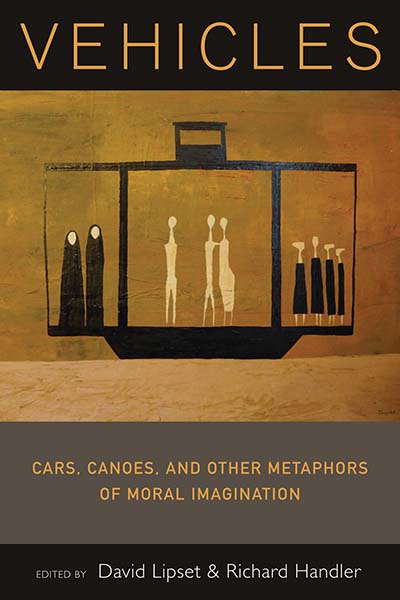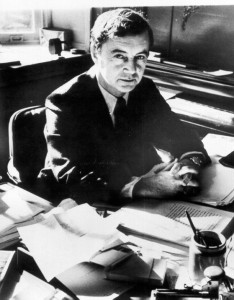 Recently published Vehicles: Cars, Canoes and other Metaphors of Moral Imagination, edited by David Lipset and Richard Handler, offers insight into the vehicle as an object that can move not only people, but also ideas. Following, Handler discusses the origination of the volume, which all came about by way of an interesting connection of coincidence.
Recently published Vehicles: Cars, Canoes and other Metaphors of Moral Imagination, edited by David Lipset and Richard Handler, offers insight into the vehicle as an object that can move not only people, but also ideas. Following, Handler discusses the origination of the volume, which all came about by way of an interesting connection of coincidence.
______________________________
This volume came about serendipitously.
My friend David Lipset emailed me in the summer of 2008 with the standard “what are you working on” question. I replied that I was working on a series of essays about the great American sociologist, Erving Goffman. David wrote back to tell me the rather astounding story about his first car, a late-1950s VW Beetle that his father had bought from Goffman, in Berkeley, California, where both of them taught.
The fact that Goffman was an “early adopter” (in the U.S.) of the Beetle explained, I thought, some cryptic comments in Behavior in Public Places, where Goffman described the interactional contempt that drivers of small cars endured.

Still emailing back and forth, David and I commented on the fact that so few anthropologists have written seriously on the automobile, despite the centrality of the car to modern culture. We decided to put together a panel for the American Anthropological Association’s annual meeting the following year, which was to be held in Philadelphia. We assembled a good cast of characters with papers on cars and other vehicles, in various societies around the world, and submitted our proposal to the AAA, which accepted it.
The annual anthropology meetings are a zoo, the largest in our discipline, with about 5,000 people in attendance, and scores of panels and papers presented simultaneously, over a four-day period. This means that no one knows in advance what sort of an audience one will have. I have participated in panels that the meeting organizers thought important and thus assigned to large rooms, only to have a dozen people show up. And I’ve been in other panels assigned to tiny meeting rooms that have drawn overflow crowds.
In Philadelphia, we were assigned a mid-sized room, and as we entered, we were delighted to find it was full, with an audience of perhaps a hundred people, many of whom stayed for the whole show. After it was all done, we realized that lots of our colleagues thought as we did, that the culture of cars and other vehicles of transportation had received far less attention from anthropologists than they deserved.
Thus our panel made the collective decision to stick together over the several years we knew it would take to revise our papers and publish them together as a book. With help from the fine folks at Berghahn Books, we’ve accomplished our goal. We hope you enjoy these chapters that were so much fun to write. They suggest, we think, areas of contemporary culture that more anthropologists should explore.
This is the editors’ second post reflecting on their volume. Read their first here.
___________________________________
David Lipset is Professor of Anthropology at the University of Minnesota and has conducted fieldwork among the Murik Lakes people in Papua New Guinea since 1981. He is the author of two books, Gregory Bateson: Legacy of a Scientist (1982) and Mangrove Man: Dialogics of Culture in the Sepik Estuary (1997) as well as articles on culture, masculinity and modernity in Melanesia. His most recent book (co-edited with Paul Roscoe) is Echoes of the Tambaran: Masculinity, History and the Subject in the Work of Donald F. Tuzin (2011).
Richard Handler is Professor of Anthropology at the University of Virginia, where he is Director of the Program in Global Development Studies. He has written extensively on nationalism and the politics of culture, museums, and the history of anthropology. His most recent book is Critics Against Culture: Anthropological Observers of Mass Society (2005).
